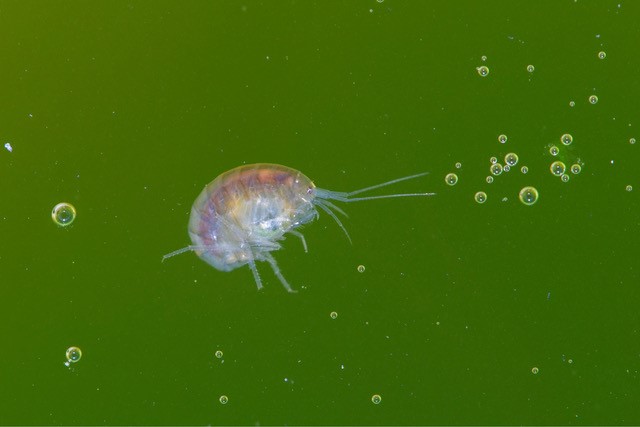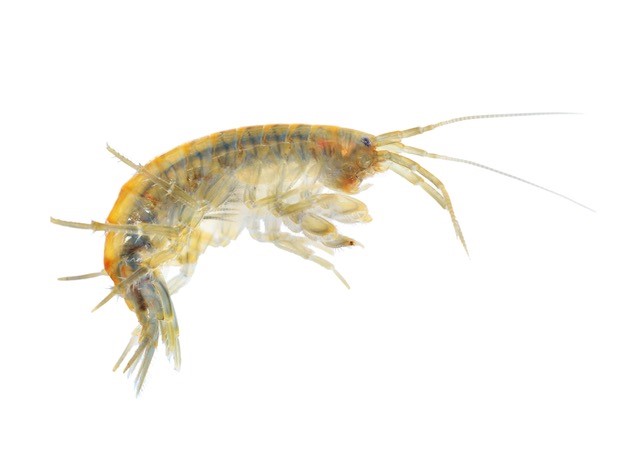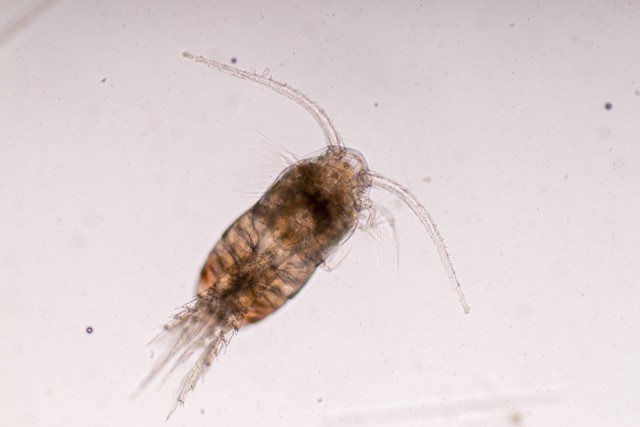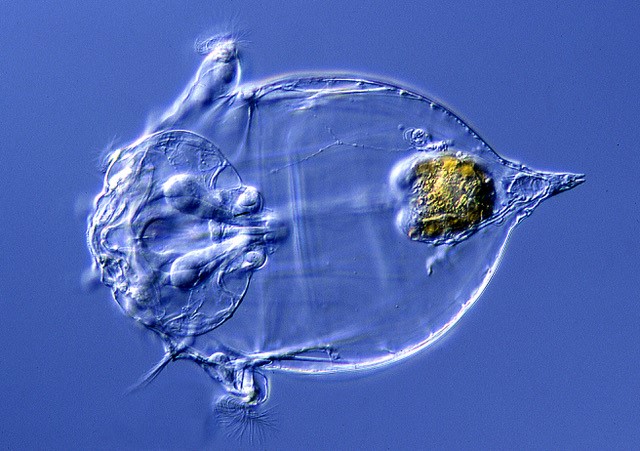
All too often on social media I see people posting pictures of 'specks' on the glass or small invertebrates with the caption 'can anyone ID these'. The answer that often comes in the comments section is 'pods' which whilst not often wrong isn't always that helpful. So, this blog is all about answering the question, What are pods?
Pods are a generic name used by reefers to describe small fauna in the aquarium which often live in the sump, rockwork or on the glass of the aquarium. When social media commenters use the term Pod they are most often referring to either Amphipods and Copepods, hence the name 'Pods'. So when the answer Pods is given to an identification question, it's not often wrong but it could be more exact. So let's quickly break it down into the two main type of Pods that you are likely to see in your aquarium.
Amphipods

As you can see in the picture these are small shrimp like invertebrates which will live on your rockwork in the main display or in detritus in your sump. They can use their appendices to propel themselves through the water column but most often they'll be scuttling around on the rockwork as if they weren't underwater at all. They can grow to be about a cm in length and some will have brown bands on their body whilst others will have black bands. The best time to see these pods is at night time with a red torch. Wait until you lights go out and then give it a few hours before using the red torch to look around the rock work and chances are you'll catch them running about. Ultimately, they are a good part of the overall eco system in your reef and will form part of your clean up crew, plus they are free fish food.. if the fish can catch them!
Copepods

Copepods are a lot smaller than Amphipods and look more like tiny white specks on the glass of your aquarium. If you can see them on your glass then they will certainly be in the rockwork as well however it's quite hard to see them on the rockwork so you'll always notice them on the glass first. The largest that Copepods really get is the size of the tip of a ball point pen. They really are tiny! Again, they are a great part of your reef tank ecosystem and if you have loads of them on your glass then they are a tell tale sign that your reef is going really well. They will naturally form some part of your clean up crew but best of all, they are a live food source for your fish. I often see my clownfish cruising the glass pecking off copepods one at a time. Some fish feed exclusively from Copepods such as the Mandarin Fish which is why everyone stresses that you must have a big supply of Copepods in your reef before attempting to keep one. They will plough through your Copepod population like there's no tomorrow!
Rotifers

These aren't pods strictly speaking but they microscopic organisms which I thought were worthy of a quick mention. They are much the same as Copepods and will form a valuable part of the reef tank clean up crew. They're also free fish food if your fish can catch them. Frozen or Liquid rotifers can be bought as a food source for your reef tank but these will of course not be live food. Rotifers will naturally colonise your reef tank over time, especially if you start with Live Rock but unless you have a microscope, you won't see them or positively identify them. Just know that they are there and that they're a good thing.
If you've never noticed any pods in your marine tank before then go have a look! I bet they're there, you've just never noticed them before. I mean, they are pretty small so you'd be forgiven for missing them. Use a red torch to look in your main tank at night and you can get away with a white torch in the sump (white light at night may spook your fish and distress them so always be wary of this). If you can't find any and you'd like to add some or maybe you want to boost your current population then bags of live Copepods are sold in store. Just float the bag in your tank for 10 minutes for the temperature to equalise and then dump them in. If you have some rock rubble in your sump then dump some here too. They'll establish themselves over time and begin breeding.
So that is a very quick whirl wind tour of 'Pods'. Now when you see the answer Pods you'll be able to dig into it a little more and figure out if it's Copepods or Amphipods. Just remember that they're both good things for your reef tank so don't panic thinking you have a pest.